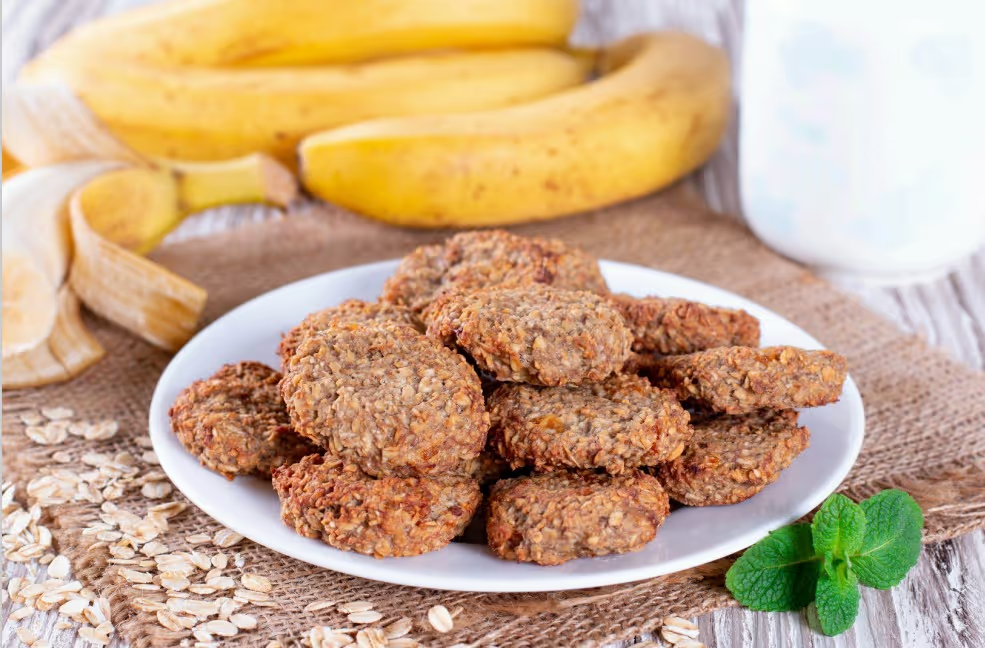The Joy of Baking: Sweet Benefits for Senior Well-Being

Baking is more than just a delightful pastime—it’s a recipe for enhanced health, connection, and creativity, especially for older adults. With National Baking Day coming up this weekend, now is the perfect opportunity to explore how this simple activity can significantly contribute to senior well-being.
Whether you're crafting a batch of cookies from scratch or decorating cupcakes with loved ones, baking offers lasting benefits that extend far beyond the kitchen.
1. Sensory Stimulation and Emotional Well-Being
Baking offers a powerful blend of sensory stimulation and emotional support, making it especially beneficial for aging adults. The smell of freshly baked bread, the texture of soft dough, and the visual satisfaction of a beautifully decorated treat all work together to engage the senses—often evoking pleasant memories and enhancing mood. These sensory experiences can also stimulate appetite, which is particularly helpful for seniors who may have decreased interest in eating. Beyond the physical senses, the act of baking itself provides a soothing, therapeutic rhythm. Measuring, mixing, and following a recipe offers a sense of structure and control, promoting relaxation and reducing anxiety. This combination of sensory delight and emotional reward makes baking a meaningful way to boost well-being and bring joy into daily life.
2. Sensory Engagement and Memory Recall
Baking has a unique ability to awaken the senses—and with them, cherished memories. The familiar scent of cinnamon, the texture of dough beneath the fingertips, or the sight of a golden-brown pie emerging from the oven can instantly transport someone back to joyful moments in the past. For older adults, especially those living with dementia, these sensory experiences can act as gentle prompts for memory recall, often bringing back images of holiday baking, family dinners, or time spent in the kitchen with loved ones. This connection between smell, touch, and memory can foster emotional comfort, spark conversation, and offer a sense of identity and belonging. Recreating a favorite family recipe together—or simply enjoying the finished product—can be a powerful way to relive happy times and deepen intergenerational bonds.
3. Enhancing Nutrition
As we age, maintaining good nutrition plays a vital role in supporting heart health, energy levels, and overall well-being. Baking at home empowers older adults to take control of what goes into their food, allowing for healthier ingredient choices that align with dietary needs. Simple substitutions—like using whole meal, almond, or coconut flour instead of white flour—can help stabilize blood sugar levels, while natural sweeteners such as honey, applesauce, or mashed banana reduce the intake of refined sugar without sacrificing flavor. Heart-smart recipes like berry crumble bars, baked apple slices, or frozen banana bites are delicious and nutrient-rich alternatives to store-bought desserts. By choosing to bake at home, seniors not only enjoy the therapeutic process but also benefit from meals and treats that nourish the body as well as the spirit.
4. Cognitive and Physical Engagement
Baking is more than a creative outlet—it’s also a valuable form of mental and physical exercise for older adults. Following a recipe requires focus, memory recall, and problem-solving skills, all of which stimulate cognitive function and help keep the brain sharp. At the same time, the physical tasks involved—like kneading dough, mixing ingredients, or decorating cookies—encourage fine motor movement and hand-eye coordination. These repetitive yet purposeful motions promote dexterity, which can be especially helpful for seniors managing arthritis or stiffness in the joints. Together, these mental and physical challenges make baking a well-rounded activity that supports both cognitive health and motor skill maintenance in an enjoyable, rewarding way.
5. Promoting Social and Physical Well-Being
Baking serves as a powerful tool for enhancing both social and physical health in older adults. Sharing the kitchen with grandchildren, swapping family recipes, or participating in group baking classes can spark meaningful social interaction and a sense of community— helping to reduce loneliness and foster emotional connection. At the same time, the physical aspects of baking—like gathering ingredients, moving around the kitchen, and cleaning up—encourage light activity that supports mobility, balance, and circulation. These small but steady movements can help reduce stiffness and boost energy levels. When paired with nutritious recipes that favor whole grains or low-sugar alternatives, baking becomes not just a social joy but a health-conscious habit that supports heart and digestive wellness. Plus, the satisfaction of preparing something wholesome can lead to more mindful eating and a greater appreciation for healthy living.
Conclusion
Baking is more than a hobby—it’s a pathway to joy, independence, and wellness for older adults. As we mark National Baking Day, we encourage you to dust off a favorite recipe or try something new. The benefits are the icing on the cake.
Oatmeal Banana Breakfast Cookies
Soft, naturally sweet, and perfect with coffee or tea—no refined sugar or flour!

Ingredients (makes about 12 cookies):
- 2 ripe bananas (mashed)
- 1 cup old-fashioned rolled oats
- 1/4 cup unsweetened applesauce
- 1/4 cup raisins or chopped dates
- 1/4 cup chopped walnuts or almonds (optional)
- 1/2 tsp cinnamon
- 1/4 tsp vanilla extract
- Pinch of salt
Instructions:
- Preheat oven to 350°F (175°C) and line a baking sheet with parchment paper.
- In a medium bowl, mash bananas well, then stir in applesauce and vanilla.
- Add oats, cinnamon, salt, dried fruit, and nuts if using.
- Mix until combined.
- Scoop spoonfuls of the mixture onto the baking sheet and gently flatten into cookie shapes.
- Bake for 15–18 minutes, or until firm and lightly golden.
- Let cool for 5 minutes before serving.
What makes this recipe healthy
- Soft texture makes them easy to chew.
- Bananas and oats offer potassium, fiber, and sustained energy.
- No refined sugar—naturally sweetened with fruit.
- Great for breakfast, a snack, or a healthy dessert.
